This time of year, Jesus’s birthplace, Bethlehem, is usually heaving with tourists and brightly decorated in Christmas lights, gleefully welcoming the celebrations of Christ’s birth with a befittingly ornate Christmas tree. But this year is different.
Ahmed Twaij
“The best way to spread Christmas cheer is singing loud for all to hear,” exclaimed Will Ferrell’s Buddy in the Christmas favorite, Elf. Certainly Christmas has always been a time for love, generosity and giving to — as Buddy reminds us — everyone. One nation struggling to receive this all-embracing love during this festive period is Palestine. Not just as a native of Palestine, but also as a being of love, Jesus would be heartbroken witnessing today’s events during a season supposedly celebrating his birth.
In the Bible Jesus teaches, “My command is this: Love each other as I have loved you.” An all-encompassing principle by a man famed for his compassion and mercy. There is no denying, however, that the bombs that have destroyed most of Gaza in recent weeks, killing over 20,000 Palestinians, with one family losing 100 of its own members, are anything but this love that Jesus preaches.
Many of us, both Christians and non-Christians, will be spending time with our families this holiday period, possibly sitting by elegantly decorated Christmas trees, enjoying various festive films and sugary desserts, far away from the shudders of airstrikes. It is during this time that we must also remember that had Jesus been born today, he would be considered Palestinian, and his birth — which we celebrate today — would have faced many obstacles along the way.
Jesus was born in Bethlehem and unbeknownst to the majority of Americans (85% to be exact), the city itself is Palestinian and found in the West Bank. This time of year, Jesus’s birthplace is usually heaving with tourists and brightly decorated in Christmas lights, gleefully welcoming the celebrations of Christ’s birth with a befittingly ornate Christmas tree.
But this year is different.
Eerily quiet, Christian church leaders of Bethlehem and Jerusalem made the decision to forego Christmas festivities in solidarity with the atrocities being rained on their Palestinian kin in Gaza.
The Evangelical Lutheran Christmas Church in Bethlehem sent a powerful message to the world by placing a baby Jesus amidst a pile of rubble to represent the thousands of Palestinian children crushed by the unforgiving Israeli bombardment of their homes. “While the world celebrates Christmas with big festivities in the homeland of Christmas,” announced Rev. Munther Isaac of the Church, “children are being killed, homes are being destroyed and families displaced.”
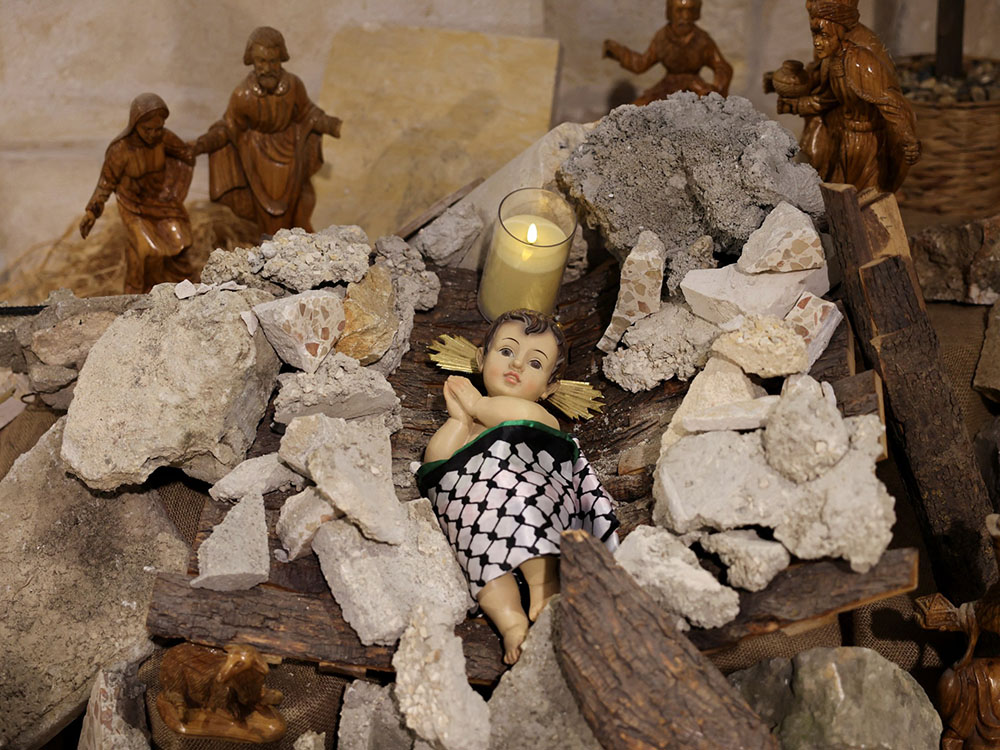
If Jesus were born today, his birth would be at risk of an Israeli raid, as Israeli crackdowns of West Bank cities, including Bethlehem, continue to be on the rise since October 7th. But it is the Virgin Mary’s journey to Bethlehem from her hometown of Nazareth that would create the greatest barrier to the tale of Jesus’s birth as we know it, and can give us a small insight into life as Palestinians and the occupied territories.
Before 1948, Palestinian identity was given to all in the region between the Mediterranean Sea and the Jordan River. “I am Palestinian,” famously admitted Golda Meir, the fourth Prime Minister of Israel whose racist ideology led her to later deny the existence of Palestinians. “From 1921 to 1948 I carried a Palestinian passport.” During that time Jews and Arabs (Muslim and Christian) could freely move in and around Palestine, including to Bethlehem.
It was only upon the creation of the State of Israel in 1948 that this all changed. According to the 1947 U.N. Partition Plan, Nazareth was meant to remain part of a Palestinian Arab state. Ignoring this, with aspirations for a “Greater Israel,” U.S. backed Zionist militia fighters surrounded the Arab Christian city of Nazareth, and, after pockets of violence, the indigenous Palestinian mayor of Nazareth surrendered to Canadian-born Zionist commander Ben Dunkelman. Unlike his counterparts, however, Dunkelman refused orders by his seniors to expel and massacre the local Arab population, and that is why Nazareth has largely maintained its Arab demographic and escaped the atrocities of the Nakba.
The Arabs who stayed in Nazareth were thus permitted to remain in their own homes (let’s acknowledge the absurdity of the fact that being allowed to keep your own home is considered a privilege). Today, they are colloquially referred to ’48 Palestinians, as are all Arabs who incidentally ended up in Israeli territory and were eventually given Israeli citizenship following the catastrophic events of the Nakba. These Israeli passport-carrying civilians (a category the Virgin Mary would have belonged to were she alive today), grants them the highest rights possible to Palestinians within the Israeli state proper, but it’s still not enough to make them equal to their Jewish counterparts in the eyes of the law.
Despite carrying Israeli ID, Mary’s journey to Bethlehem would not be easy. Unlike Nazareth, Bethlehem didn’t fall to the Zionist offensive in 1948 but became a city of refuge for many Palestinians who fled massacres from the towns nearby, including the horrific Deir Yassin massacre of 1948, described as a Zionist act of “great savagery” by a British delegation to the UN.
The city of Bethlehem, which used to be a majority Christian Arab city, suddenly found itself housing large numbers of Muslim Arabs. Initially, Bethlehem, as well as the rest of the West Bank, fell under the control of King Abdullah of Jordan, but after the Six Day War of 1967, Israel occupied the entirety of the West Bank and continues to control it via military rule, with Israeli raids across the West Bank now a daily occurrence.
After numerous other wars, the West Bank was eventually subdivided into three main areas after the Oslo II Accords in 1995: Areas A, B and C. Area A theoretically falls entirely under Palestinian Authority rule, whereas Area C is where illegal Israeli settlements are located and therefore under strong Israeli protection. Bethlehem is one of those cities located in Area A.
As a surveillance tool and a tool of oppression, the Israeli government also set up a color-coded ID card system. To enter Jerusalem, a blue ID card (at a minimum) is required by Palestinians, and this is only provided to those who have been granted permanent residency in Jerusalem, despite East Jerusalem being technically in the West Bank. However, being born in Bethlehem, an Area A city, Jesus would have only been granted the inferior green ID card, blocking him from ever traveling to Jerusalem. He would also be blocked from traveling back with his mother to Nazareth, considered exclusively Israeli territory.
Palestinians are meant to have freedom of travel within each of their areas, but sadly, the brutality of occupation has meant that Israeli checkpoints are in force across the West Bank, with 175 permanent Israeli checkpoints and counting, often humiliatingly restricting the movement of Palestinians — sometimes fatally.
To travel the 100km journey from Nazareth to Bethlehem, the Virgin Mary would have to cross 15 of these checkpoints today – that is, if she were allowed through at all. For a heavily pregnant Mary, this journey would have been arduous and potentially fatal when faced by young and obnoxious IDF soldiers. Attempting to find their ways to hospitals, Palestinian women in labor are often delayed without cause at these checkpoints. According to the U.N., since 2000, 68 pregnant Palestinian women have given birth at Israeli checkpoints, 35 miscarried during the wait and five women sadly lost their lives. Mary could have been any one of them.
The first checkpoint Mary would have reached is the Jamala checkpoint. This is the main crossing from Israel into the Occupied West Bank, crossing the 1949 armistice line — the de facto border between Israel and Palestine that requires an Israeli-issued ID to cross. Without one, Palestinians remain trapped in the West Bank almost their entire lives. Along her journey south to Bethlehem, Mary would witness the daily apartheid that divides Palestinians and Israeli civilians. She would see the prosperous Israeli settlements, green and lush and ordered against the oppressed Palestinian cities. One of the illegal settlements she would pass is the Yizhar settlement, protected by the IDF; this one settlement houses some of Israel’s most right-wing colonizers, who often launch barbaric (and under reported) attacks on the Palestinian natives.
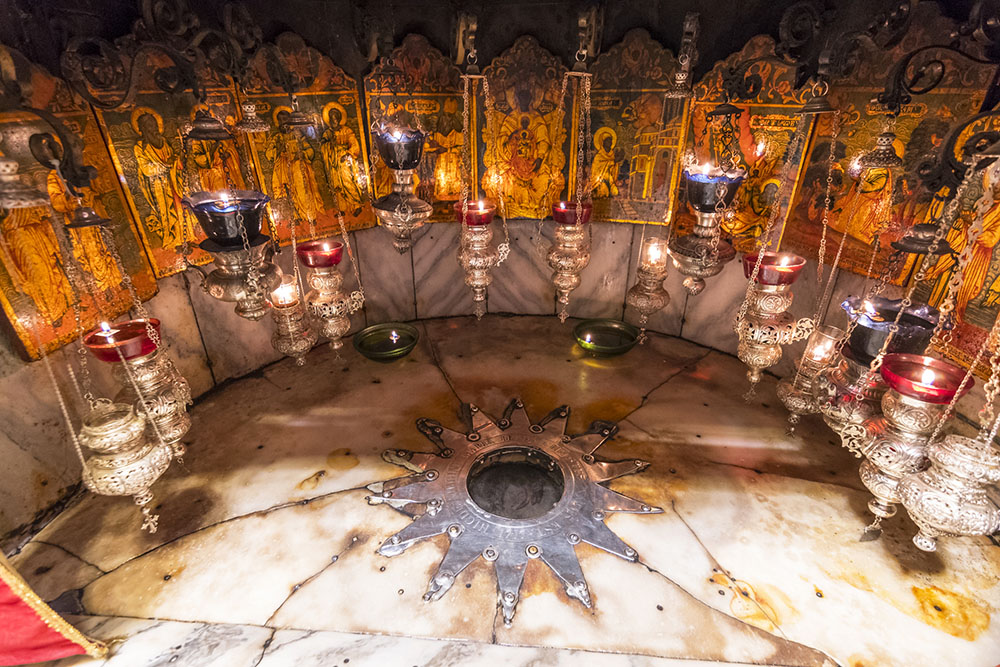
Upon arrival to Bethlehem, as an ABC news story reports, Mary would still have had to “pass through a massive steel door, cross Israel’s eight-meter-high Security Wall and pass two sets of armed Israeli soldiers.” Just last month, three Palestinians were killed by Israeli forces at this very checkpoint. But Bethlehem, being an Area A city, would actually be off-limits for an Israeli passport-carrying Mary, as Israelis are technically not allowed to visit Area A districts. Going against the Oslo Accords, the Israeli Defense Force regularly breaches these limits and invades the cities regardless, often at night.
In today’s world, it seems highly unlikely that a modern Mary would ever reach Bethlehem to give birth to mankind’s savior. The nativity as we know it could never take place. Not to mention, the Three Wise Men (Magis) who came bearing gifts for the birth of Christ would likely be turned away by Israeli border control. Melchior, one of the wise men, was a Persian scholar and would be from modern day Iran, Israel’s sworn enemy. Balthazar, a Babylonian scholar, would be from modern day Iraq and also likely to be turned away by Israel’s security agency, Shin Bet, as the majority of those turned away have ties to Arab countries.
One variable that I have overlooked is the fact that Jesus and Mary were both Jewish. This means that regardless of where Jesus would be born, be it Tel Aviv, Bethlehem or even Sydney, Australia, Jesus would be given the birth right of Israeli citizenship. Palestinians native to the land, some of whom converted from Judaism to Islam (confirmed by genetic similarities between Jews and Arabs), continue to suffer from systematic oppression. In Islam, it can also be argued that Jesus would be Muslim if born today.
Although Jesus’s birthplace continues to suffer under a violent occupation, including the oppression of Palestine’s own Christians, it is surprising to discover that Israel’s largest fundraisers — larger than the infamous AIPAC lobby group — is the Christian right that drives the GOP’s pro-Israel stance. American Christians continue to turn a blind eye to their brethren under attack in the Holy Land, clinging instead to the apocalyptic belief that in order to set the stage for Christ’s second coming, Jews must preside over the Biblical Greater Israel. Thus, millions of dollars flow from America’s Bible Belt to Zionist groups in Israel. This philanthropy is not out of love for Judaism. What remains unsaid in their support of Jewish hegemony over Israel is the second part of the prophecy, which describes that the Armageddon war upon Jesus’s return will see the Jews of the region killed as collateral damage to build the supposed Christian utopia.
In today’s Palestine, however, it is innocent Palestinian lives that are the collateral damage of these messianic visions. It is satirical to see, how despite ardent support by Western governments of this decades-long persistent Israeli aggression against Palestinians, every Christmas, thousands of Western parents dress their children in Arab-style clothing as they recreate the nativity scene in schools, often without realizing that these long, flowing robes are native to Arab culture.
The Church of England has even set out some recommendations on how to dress children up to represent Jesus’s homeland, calling for a “tea towel” to be “used for the head-dress” which represents the Palestinian keffiyeh (gutra or shmaagh in other Arab dialects) that has today become synonymous with Arab resistance (or a symbol of terrorism according to Google). This headband is to be “secured with a piece of ribbon,” known as an agaal in Arab culture. To mimic a Palestinian thobe, children are asked to dress in a “pillow case” with holes cut for the head and arms. The irony of unknowingly dressing children up as Palestinians for Christmas whilst ignoring the massacre of actual Palestinian children is bitter.
And just as these thobes are Palestinian art forms passed down from generation to generation, tatreez (Palestinian embroidery) is also a skill that has been handed down through multiple generations of Palestinian women. And it is lost on so many of us that the Christmas jumpers and sweaters worn by many around the world as cheery holiday attire have the roots of their designs in Palestinian culture. The 8-pointed star found on many Christmas sweaters is actually a nod to Jesus’s birthplace and is known as the Star of Bethlehem, originating in Palestinian tatreez designs well before Christmas jumpers became popular.
Christmas does find a lot of its roots within Palestinian culture, but it is this culture that has suffered from attempted systematic erasure over decades. Thus, during this year’s Christmas, let us remember the sufferings of the Holy Land and how different Mary’s journey would be if Jesus were born today, because as for Palestinians, it remains a daily struggle.
And if you ever sided with Kevin Mcallister in the Christmas classic Home Alone, then remember those whose homes have been raided from 1948 until today. When Kevin’s house is invaded by the Wet Bandits in the film, no one watching along supports the thieves in their unjust ambitions. Instead, Kevin is the hero for protecting his home, but in the warped dystopia that is Palestine, Palestinians are stereotyped as the terrorists while the oppressors who have ransacked and destroyed homes for decades paint themselves the victims. In response, maybe Kevin’s famous line is apt here, “I’m gonna give you to the count of 10 to get your, ugly, yella, no good keister off my property.”



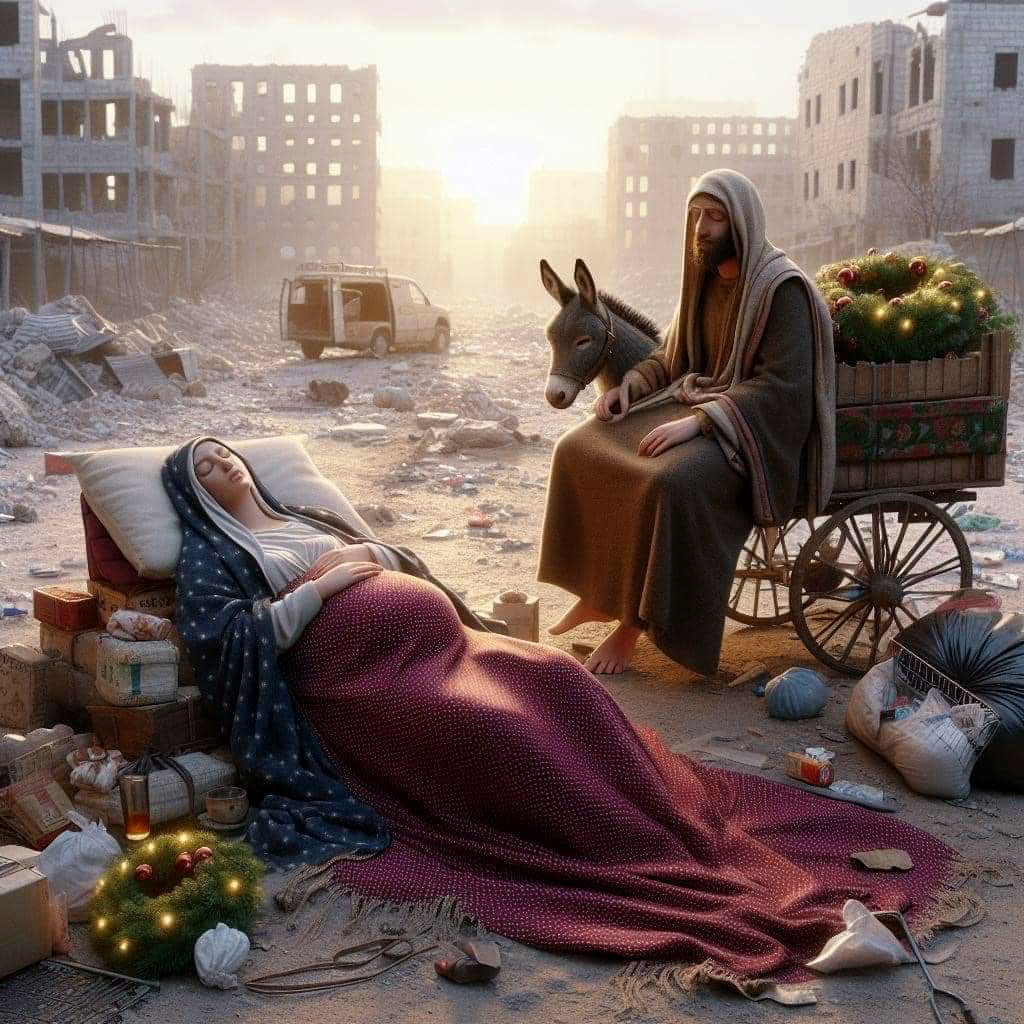

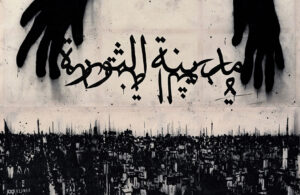



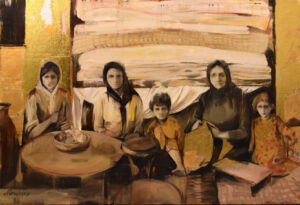

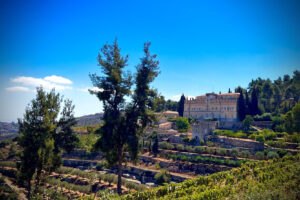









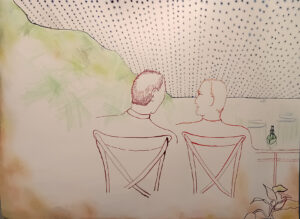













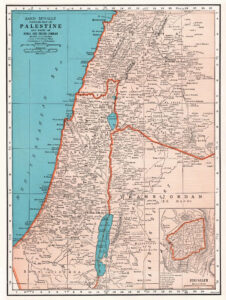








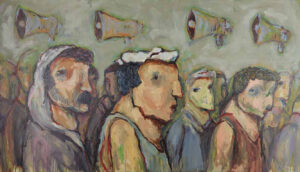
















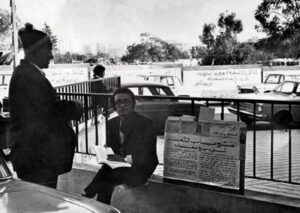




























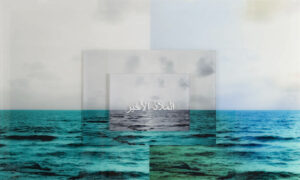
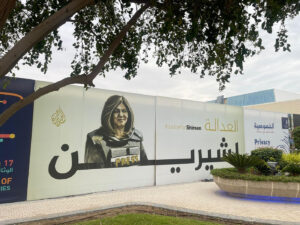






![Fady Joudah’s <em>[…]</em> Dares Us to Listen to Palestinian Words—and Silences](https://themarkaz.org/wp-content/uploads/2024/03/SAMAH-SHIHADI-DAIR-AL-QASSI-charcoal-on-paper-100x60-cm-2023-courtesy-Tabari-Artspace-300x180.jpg)













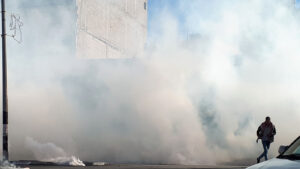





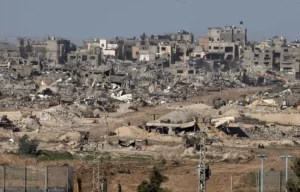
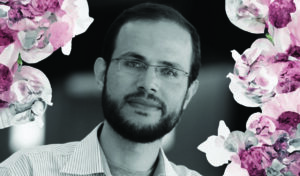


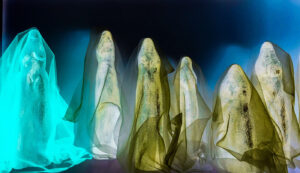















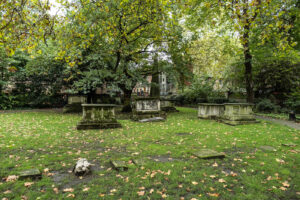







































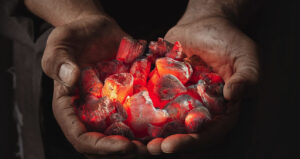



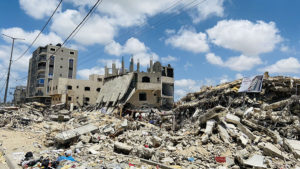
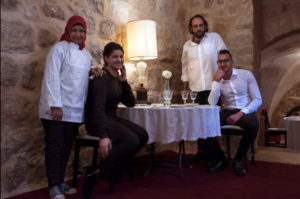



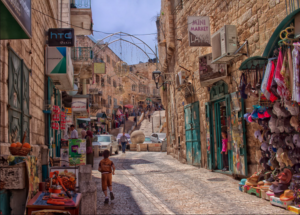









When Jesus was born 2000 years ago Bethlehem had nothing to do with palestine, there was no West Bank or Gaza. Palestinians and Palestine didn’t even exist yet, It was all land of the Jews, Jesus was a Jewish descendant of King David and descendant of Judah, son of Jacob, later his named changed to Israel. So it’s wrong to say Jesus was Palestinian because all this predated anything that had to do with Palestine.
We suspect you are not a historian, for Gaza’s history of habitation dates back 5,000 years, making it one of the oldest cities in the world. A cursory glance, one finds, “Inhabited since at least the 15th century BCE, Gaza has been dominated by different peoples and empires throughout its history. The Philistines made it a part of their pentapolis after the ancient Egyptians had ruled it for nearly 350 years. Under the Roman Empire, Gaza experienced relative peace and its Mediterranean port flourished. In 635 CE, it became the first city in the Palestine region to be conquered by the Rashidun army and quickly developed into a centre of Islamic law.” (Wikipedia.) Etc. So if you prefer not to say Yehoshua was Palestinian, you can call him an Israelite, a Canaanite or a Philistine. One thing is clear, in any case, which is that while Jews were native to the land 2,000 years ago, that would not give any land rights to Ashkenazi Jews showing up to colonize what had become Palestine after Yehoshua’s time. Shalom.
Philistines were a NON-SEMITIC group. They were mainly from Greece and island of Crete. Goliath, killed by King David, was a Philistine. The name was not even rooted in Arabic language, as the name Philistine (paleshtim) comes from (palesh) which is to invade/invaders. The word palestine is rooted in Hebrew understand and language/traditions and stories, not Arabic, it has no meaning in Arabic. Additionally, Arabs come from Saudi Arabia…Just as Mohammed made it clear to his followers that Jews pray towards Jerusalem and Muslims pray towards Mecca, in the Hadiths. Zion is the name for Jerusalem also and is mentioned almost 200 times in the scriptures…not once is Jerusalem in the Quran. Gaza is mentioned in the scriptures as Azzah, and refers to the Philistines, and that is not the same people group of Arabs that choose to call themselves that now. Years ago, not that long ago, Arabs in the land called themselves by their last name, clans, tribes, and location they were from. Jews were often called by outsiders, Palestinians. And the name was a title, not ethnicity. Some others in the land also went by the name. Including Egyptians that came to work for the British during the mandate in the 1920s and 1930s…they were Egyptian…The Arabs there now are many from Egypt, Syria, and those areas, and some from Turkey, and of course Arabia…Jerusalem, etc. had no real weight in the Arab world as much as Syria. Many Muslims referred to themselves as Syrians since many of them called that area Surya al-Janubiyyah. “Palestinian” was a term coined as the name of the mandate, and before that, due to the use of the word in Hebrew of the Philistines, the extinct non-Semitic people, Greece and Rome called them that and often the region. The coins that have the word Palestine, also have two Hebrew letters in parenthesis that translates out to “land of Israel”. The Quran does not have the word “Palestine” in it, but it does have the Jews and Israel as the land that Allah gave to them. The Jews have never fully left that land, and always remained. The ones who did exile out to various diaspora countries were often treated badly, not just in Europe (since Jews are not rooted in Europe), but also throughout the Middle East and North Africa. Several massacres against them throughout those lands. Arabs are not indigenous to the levant, they are indigenous to Arabia. The culture of the Jewish people is CENTERED around Zion, the hill’s name that Jerusalem sits on. Jews pray towards Zion, Jerusalem. All the agricultural laws, practices, holidays, etc. are all centered around the land and Jerusalem. The land there is filled with history of the Jewish people and tribes. It is also found in the DNA of Jewish people all over the world, it is an ethnicity. We have prophecies of the Messiah, and the term comes from Hebrew, not Arabic, it comes from the faith of Judaism (Yehuda), the children of Israel, from the 12 sons of Israel. Islam came after Christianity. The Quran recognizes Israel, the Jews, the promises made from the Creator (that do not just disappear by the way), and even talks of the prophets of Judaism, including the Bayt al-maqdis (our beit ha mikdash). There is 100% a true tie and connection to the land with the Jews and Israel, the land, and it cannot be broken or covered over. There is historical evidence from ancient times and up till current that the Jews are historically from that land. Every year, no matter where the Jews live in the world, they say once per year “next year in Jerusalem” as a craving and prayer for the homeland. Yeshua was not Arab, and Arabs’ last names often refer to their tribe and their land they came from. Yeshua was from a very specific lineage. Prophecies maintain that the messiah must be from a specific lineage that is listed out. This is not a guessing game, and has nothing to do with the tribes of Ishmael. There are also prophecies about Ishmael and his descendants in Genesis, which seem to be accurate. It is not a good thing for Muslims to cover up the history of people of the books, especially in a way that lies about the prophets and the promises of God.
What beautiful writing. Thanks for sharing this. Palestine is the holy land. Israel destroys the holy land and Palestine people. This is an illegal occupation and a geneocide of the people of Palestine. This is a crime against humanity. Free Palestine.
There was no such country called Palestine, at the time Jesus Christ was born. He was a Jew, the son of two prosperous Jews.
That’s like saying Santa would be Turkish. Modern political borders don’t change history. Jesus was Judean.
Ironically, it is Israels IDF militarily wiping out, erasing the historical birthplace of the Jewish Messiah along with its people who believe him to be the Messiah. Looks like sn act of anti-Semitism.
Yes Jesus is Palestinian yes he was born in Palestine 🇵🇸
Got it wrong. No and no.